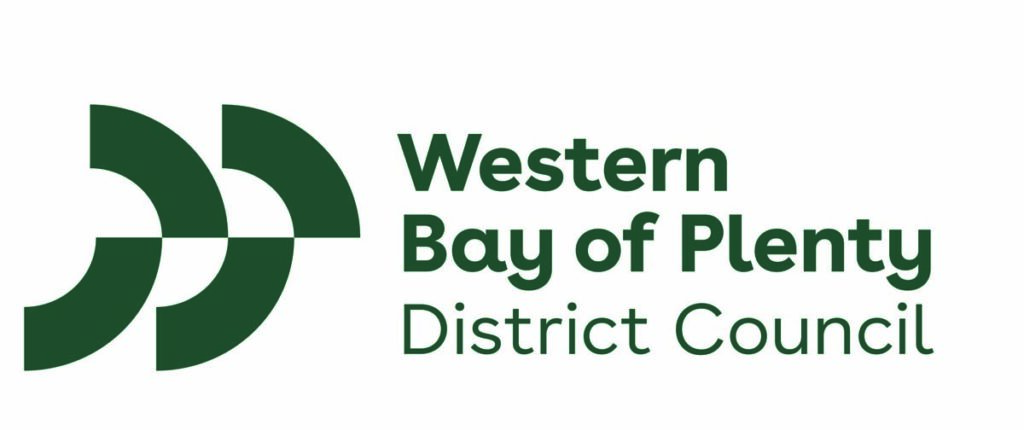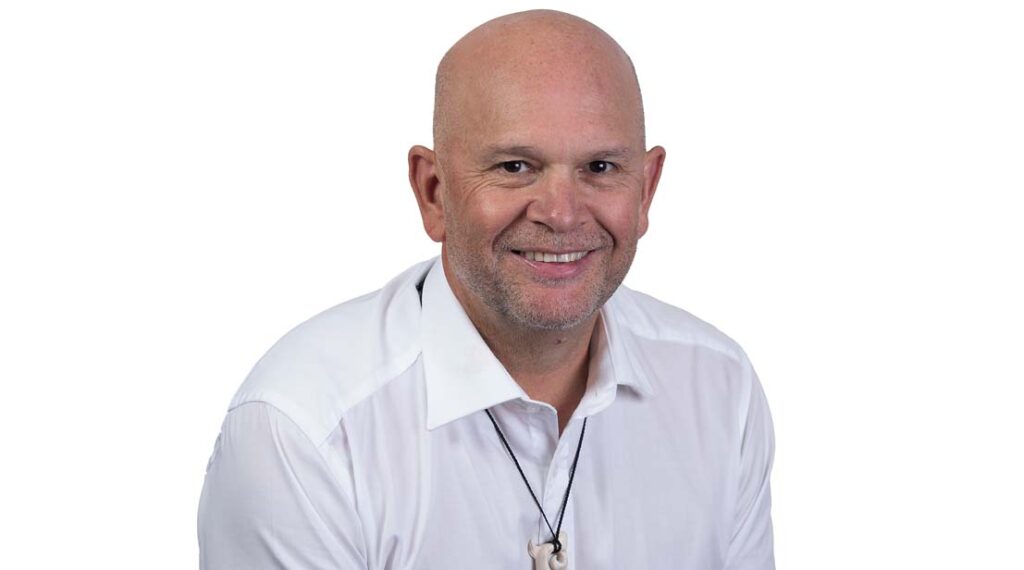John Holyoake, or JH as he prefers, is the first to admit he’s “probably a little bit different” to other chief executives.
The Western Bay of Plenty District Council chief executive is sitting in his ‘office’ on a blue velvet sofa. Behind him is a pink 1950s-style fridge and a large boardroom table, with a tokotoko resting in the middle.
Office is a loose term, as staff filter in and out of what is a very fluid space, wishing him “mōrena”.
Since taking on the role three years ago, John has been intent on bringing down walls – both literally and figuratively.
He doesn’t believe in closed doors, so he took them off, and knocked out a couple of walls while he was at it.
“I walk the halls, I visit people in their offices, ask them how it’s going. I like to think I’m accessible,” says John.
He’s holding a golf club – his own tokotoko of sorts – which he passes between his hands with the restless energy of someone who doesn’t like to sit still, someone who likes to get stuff done.
John and his wife Sara moved to Ōmokoroa following the Covid lockdowns, impulsively buying a house backing onto the golf green, during a weekend visit – a move that brought him closer to his dad, in Te Puke, and his mum, in Rotorua.
Initially commuting to Auckland, where he was chief executive of the Tamaki Regeneration Company, he had not previously worked in local government but was drawn by the opportunity to create positive community change.
“I saw a value set alignment. At the time there was a lot of talk about local government reforms, and I was hoping I could be influential in the housing space.”
Housing is something John has a “phenomenal” passion for. (Side note: John says “phenomenal” a lot.)
I’m a real believer that having a secure roof over your head is fundamental to your quality of life on so many different levels. Just knowing where you’re going to wake up in the morning, where your tamariki are going to go to school, who your doctor is, who your neighbours are, that’s security of tenure and so many people don’t have that.
“I’m a real believer that having a secure roof over your head is fundamental to your quality of life on so many different levels. Just knowing where you’re going to wake up in the morning, where your tamariki are going to go to school, who your doctor is, who your neighbours are, that’s security of tenure and so many people don’t have that.”
Auckland-born, John had a transient childhood. His father worked for Lion Breweries, managing hotels in Auckland, Wellington, Hawke’s Bay, Taumarunui and Rotorua.
“I don’t remember living in a house until I was about 15. I think that insecurity shaped my passion for housing. I always knew I’d wake up somewhere safe, but the constant moving and breaking of relationships had an impact,” says John.
“It also shaped me in terms of interpersonal skills. I needed to learn skills to fit in, to survive and adapt.
I think that’s why I’m so outgoing.”
Building communities
John entered the workforce when he was a teenager, processing loan applications for the Housing Corporation in Rotorua.
“That’s where I got my sense of public good. But at a very practical and real level. You’re actually providing a house.”
It was while working there that he met and married Sara, who was in the marketing and communications team, and they became parents to Josh, now 32 and living in Melbourne.
A restructure a few years later saw the creation of Community Housing, and John was appointed operations manager in Wellington.
“You don’t get many experiences in life, and I’ve had two of them now, to basically set up a company from nothing and be involved from day one,” says John. “The most incredible thing we did was working closely with some of the big, intellectual disability hospitals –
Tokanui, Braemar, Carrington, Kimberley – to set up service arrangements and buy, adapt or build purpose-built group homes.
“It was phenomenal, bringing people back out into the community, and realising that some of them didn’t have intellectual disabilities, they just had a mental health issue, like depression… it’s very sad even talking about it now.”
After five years, and looking for a new challenge, John became the state housing area manager for Porirua and Hutt Valley.
“We looked after some of the worst areas in Aotearoa in terms of poverty and crime. It was a bit wild west sometimes.”
He recalls some “crazy” days – a murder in one of the houses, an armed robbery, a man walking into the office with a shotgun.
“It made me realise that people react the way they do in those situations because of stress. When someone says they’ll take your house away, it’s breaking point. I can’t even imagine the feeling of not being able to provide a house for your family.”
It was an intense portfolio and after two years John segued into the IT space, moving to London in 2000 with his family for a three-year ‘OE’, returning in time for Josh to settle into high school.
With the bright lights of the UK and Europe behind him, he was soon flung into the backblocks of New Zealand, taking charge of the Rural
Housing Programme.
“We were going into these far reach places to houses that had dirt floors and no electricity or plumbing. Housing is incredibly important to me. So, I was back doing what I loved.”
The next opportunity to present itself was with the Department of Corrections.
“They were building a whole lot of new prisons, but they also needed to shut down a number of older prisons, so it was big change stuff. It was really interesting learning how prisons operate and what they do. They are like little communities, they are amazing.”
Building the Auckland South Corrections Facility, New Zealand’s first public private partnership, was part of his remit – and a couple of months before it opened he got another phone call.
Breaking new ground
“Brian Donnelly, the chair of Tamaki Regeneration, said ‘I’m looking for a CE for this fledgling organisation, it’s got 10 staff but in two months’ time cabinet’s going to sign off on 3000 houses to be transferred to them by Housing New Zealand.’
“It was the first ever model where it was partially owned by crown and council. It’s never been replicated anywhere else in New Zealand and I’m incredibly proud of what we achieved. It was amazing and I absolutely loved it. I was able to create a culture, a way of working with community which was phenomenal.”
It was John’s first chief executive role, and a life-changing experience.
“It was probably the most formative role for me in terms of understanding diversity, and having some real ‘oh yeah, okay’ moments around systemic racism, white privilege and the huge economic and social gap that has been created. The leadership fragility that I experienced was hard, but I think I became John 2.0 during my time there, I really do.”
Bringing this ‘upgraded’ version of himself to Council, John is passionate about working in true partnership with Māori. He’s also intent on creating a more relaxed environment, with less red tape.
“I think we’re heading in a good direction. We’re having some good kōrero around the table about how we can simplify things a little bit, and I like that.”
But there’s one thing he won’t be changing.
“I was looking forward to the challenge of changing the culture, but I walked in and thought, this culture’s amazing. The people here are great, everyone’s really passionate, they look after each other and they care about our community.”

Phone 0800 926 732 | www.westernbay.govt.nz


